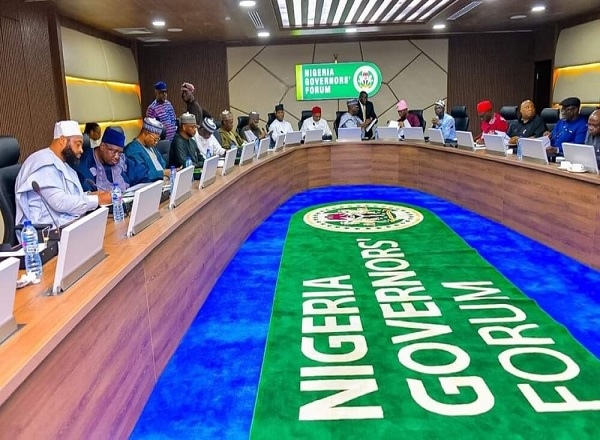At a time when majority of Nigerians are being asked to tighten their belts, the spectacle of Nigerian governors embarking on a three-day leadership retreat in Kigali, Rwanda, raised more than a few eyebrows.
The event, facilitated by the United Nations Development Programme (UNDP) for the Nigeria Governors’ Forum (NGF), aimed to provide a platform for public officials to exchange insights on complex problems and effective leadership.
Yet, for many Nigerians grappling with the removal of fuel subsidy and a volatile exchange rate, the optics of such a retreat were seen as out of touch with the prevailing economic realities.
The question of why these governors needed to travel to Kigali for such a retreat when there are institutions within Nigeria that could provide similar training looms large.
Nigeria boasts institutions like the National Institute of Policy and Strategic Studies (NIPSS), the Nigerian War College, the Nigeria Defence College and Administrative Staff College of Nigeria (ASCON) all well-equipped to conduct training programs for its governors. So why the need to travel abroad?
Former Minister of Foreign Affairs, Professor Bolaji Akinyemi, voiced this sentiment, asserting that Nigerian governors had no business attending a leadership retreat in Kigali.
He questioned the UNDP’s role in organizing such an event and argued that it was unnecessary for foreign organizations to provide training for Nigerian leaders. In his words, “They didn’t need to humiliate us by going to Rwanda.”
Akinyemi’s perspective resonates with the concerns of many Nigerians. We align completely with his view.
One of the most striking issues is the perceived extravagance associated with these trips. While the UNDP may cover accommodation expenses, the cost of flight tickets, especially if governors are flying first class or chartering flights, raises concerns.
In the considered opinion of this newspaper, at a time when the nation is calling for sacrifice and austerity measures, such luxury adventure is detrimental to public perception.
Moreover, the question arises: How can the Nigerian economy flourish if its leaders continually opt for foreign goods and events?
Needless to say, economic growth in Nigeria can only be sustainable when there is a concerted effort to boost local production of goods and services. It’s a call for leaders to lead by example, to invest in their own nation, and to demonstrate that they believe in the potential of the Nigerian economy.
Beyond these concerns, it is essential to recognise that good governance is not the exclusive responsibility of the federal government. Nigeria’s development hinges on effective governance at all levels – local, state, and federal.
The belief is that the focus on the presidency often overshadows the importance of effective governance at the state level. It is undeniable that Nigeria’s development hinges not only on the performance of the federal government but also on the competence and integrity of governors in the country’s 36 states.
Sadly,the neglect of state-level governance can have dire consequences for the nation’s progress.
Nigeria’s states are not mere appendages of the federal government but vital entities in their right. They have a significant role in shaping the lives of their citizens and fostering development.
Neglecting issues of governance at the state level undermines the very essence of democracy.
In light of these concerns, it is only fair to ask why the choice was made to hold this retreat in Kigali, Rwanda, rather than within Nigeria.
Could the funds spent on international travel have been better allocated to address pressing issues within the country? While international exchanges and experiences can be enriching, they should not come at the expense of domestic priorities.
Ultimately, the Kigali retreat has ignited a debate about the allocation of resources, the necessity of international travel for leadership training, and the importance of good governance at all levels.
It’s a call for Nigerian leaders to reevaluate their priorities and ensure that their actions align with the aspirations and needs of the Nigerian people.
Furthermore, at this period in time when the nation yearns for responsible leadership and economic stability, Nigerian governors must lead by example. They must show that they are committed to the well-being of their citizens and the development of the nation. The journey towards a prosperous Nigeria begins with prudent governance, whether at home or abroad.
It’s time for leaders to steer the ship in the right direction, with a clear understanding that the destiny of Nigeria lies in their hands, and the world is watching.





